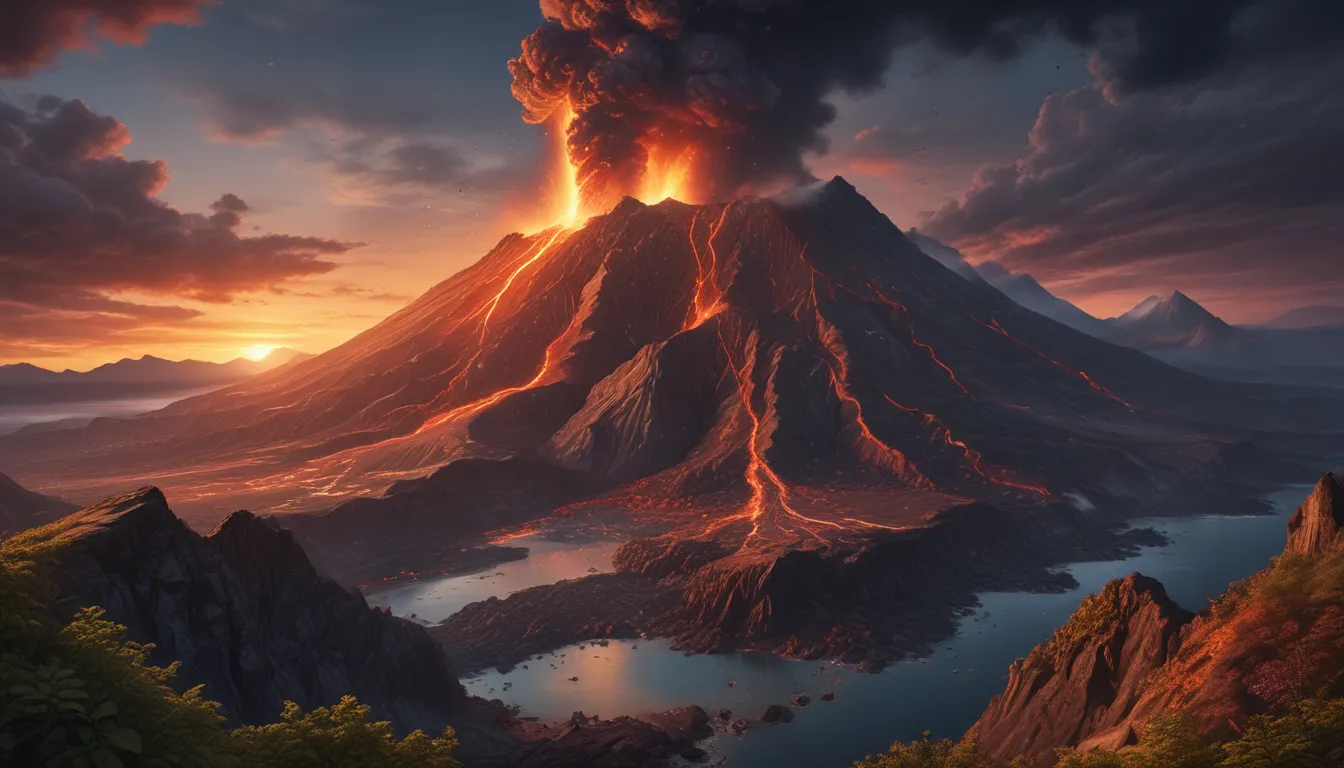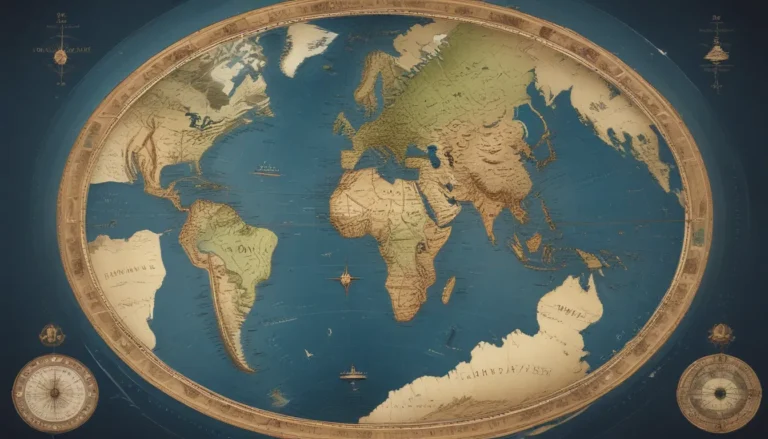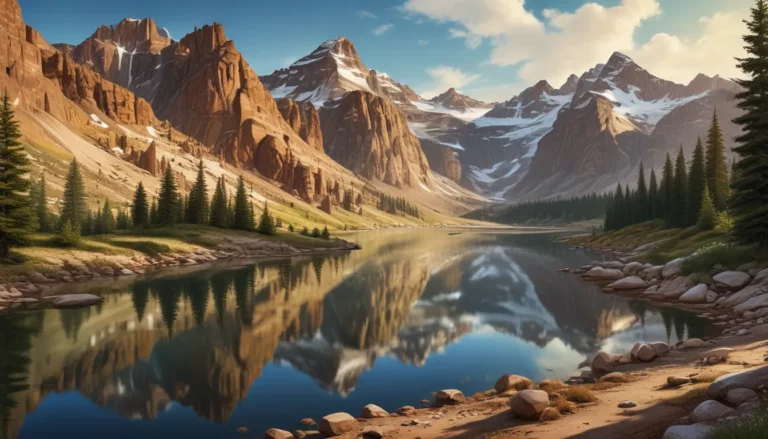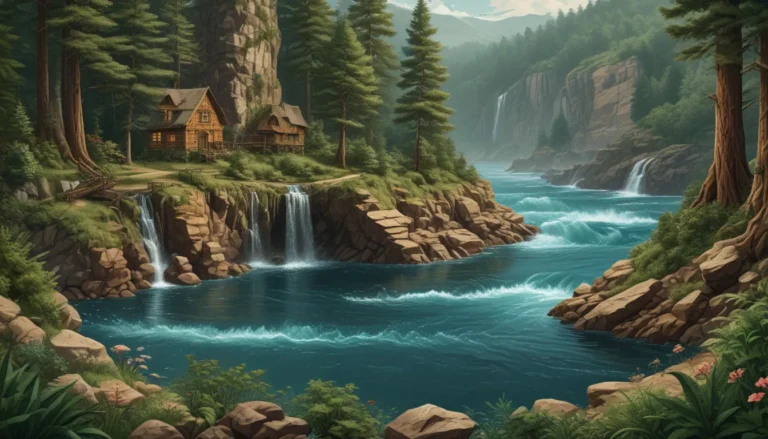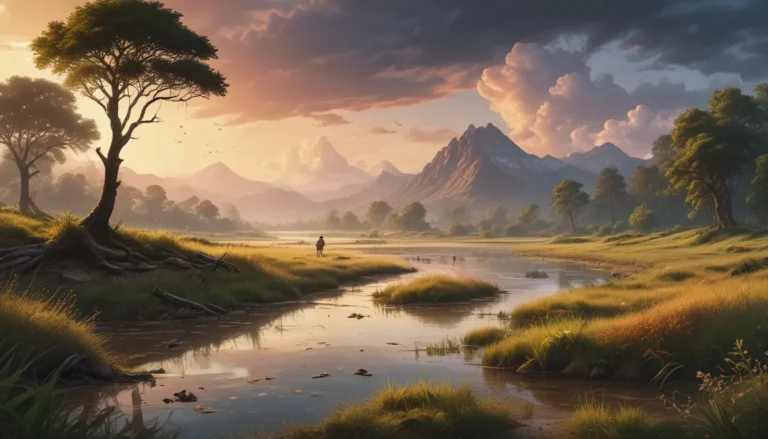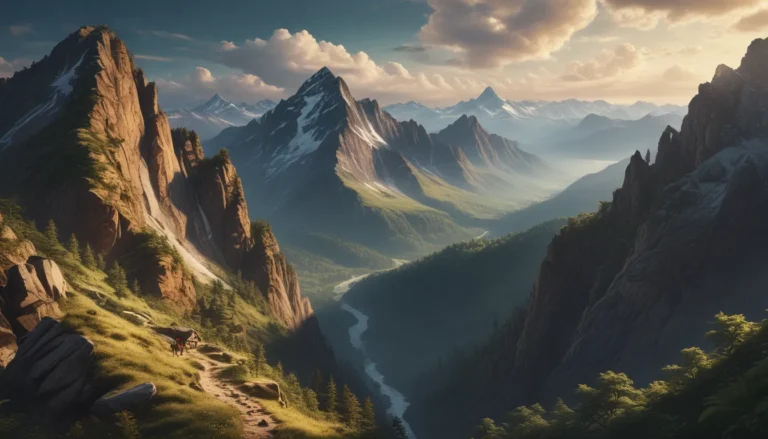A Note About Images: The images used in our articles are for illustration purposes only and may not exactly match the content. They are meant to engage readers, but the text should be relied upon for accurate information.
Welcome to the captivating world of volcanism, where the raw power and beauty of volcanic eruptions have mesmerized scientists and adventurers alike for centuries. In this informative article, we will take you on a journey through the intriguing realm of volcanism, shedding light on nine fascinating facts about this natural wonder. From the formation of volcanic hotspots to the creation of breathtaking landscapes, volcanism plays a vital role in shaping the Earth’s surface. So, buckle up and get ready to delve into the science behind volcanic eruptions, the different types of volcanoes, and the remarkable benefits of living near these powerful geological features.
Unlocking the Mysteries of Volcanism
Volcanism: A Result of Tectonic Activity
Volcanism is driven by movements in the Earth’s tectonic plates, leading to the discharge of molten rock, ash, and gases from a volcano. This phenomenon is commonly associated with plate boundaries, such as subduction zones and divergent boundaries, where the Earth’s crust is in a state of constant motion.
Exploring the Diversity of Volcanoes
Volcanoes come in various forms, each with its unique characteristics and eruption styles. From stratovolcanoes and shield volcanoes to cinder cones and composite volcanoes, the type of volcano is determined by the composition of magma and the nature of eruptions that occur.
The Impact of Volcanic Eruptions
Volcanic eruptions can have both destructive and constructive effects on the environment. These eruptions release large amounts of ash, rock fragments, and gases into the atmosphere, leading to the formation of volcanic clouds, pyroclastic flows, and lahars. While these phenomena can cause widespread damage, they also play a crucial role in shaping the Earth’s landscapes.
Harnessing the Power of Volcanic Energy
The heat generated by volcanic activity can be utilized to produce geothermal energy. Geothermal power plants tap into the natural heat from underground volcanic sources to generate electricity and heat buildings, offering a renewable and sustainable energy source.
Unveiling the Marvels of Volcanic Landscapes
Forming New Lands Through Volcanic Activity
Over time, volcanic eruptions contribute to the creation of new landforms. The deposition of lava and volcanic ash can accumulate over centuries, forming new islands, mountains, and even entire continents, showcasing the dynamic nature of the Earth’s surface.
Prolific Benefits of Volcanic Ash for Agriculture
Volcanic ash is renowned for its rich nutrients and minerals, making it highly fertile for agricultural purposes. Farmers often rely on volcanic soil to cultivate crops, as it provides essential elements for robust plant growth and yields.
Shaping Earth’s Geological History Through Volcanism
Volcanic eruptions have played a pivotal role in shaping the Earth’s geological features over millions of years. They have contributed to the formation of mountain ranges, valleys, and other landforms, influencing the distribution of minerals and resources across the planet.
Beyond Earth: Volcanism in the Cosmos
Volcanism Across Celestial Bodies
Volcanic activity is not confined to Earth alone; other celestial bodies, such as the Moon, Mars, and Jupiter’s moon Io, also exhibit volcanic phenomena. Exploring these volcanic systems offers valuable insights into the geology of other planets and moons in our solar system.
Essential Role of Volcanism in Earth’s Climate
Volcanic eruptions release gases, including carbon dioxide and water vapor, into the atmosphere, which can have significant impacts on the Earth’s climate. Understanding the effects of volcanic emissions is crucial for studying climate change and its global implications.
Appreciating the Power of Volcanoes: A Conclusion
In conclusion, volcanism is a captivating natural phenomenon that continues to shape our planet and inspire awe and wonder. Each volcanic activity, from explosive stratovolcano eruptions to tranquil shield volcano lava flows, offers a unique insight into the Earth’s inner workings. The study of volcanism provides invaluable knowledge about geological processes, helping us comprehend the risks associated with volcanic activity. As we unravel the mysteries of these intriguing facts, our admiration for the formidable power of volcanoes grows, reminding us of the immense forces at play beneath our feet.
Frequently Asked Questions
Unlocking More Insights About Volcanoes
Q: How are volcanoes formed?
A: Volcanoes are formed when molten rock, known as magma, rises to the surface through cracks in the Earth’s crust.
Q: What causes volcanic eruptions?
A: Volcanic eruptions result from the build-up of pressure within a volcano due to the accumulation of magma. When the pressure becomes too great, the volcano erupts, releasing magma, gases, and volcanic ash.
Q: Can we predict volcanic eruptions?
A: While monitoring volcanic activity allows scientists to make predictions based on indicators like seismic activity and gas emissions, accurately forecasting when and how a volcano will erupt remains a complex challenge.
Q: Are volcanic eruptions hazardous?
A: Yes, volcanic eruptions can pose significant risks, emitting toxic gases, triggering pyroclastic flows, causing landslides, tsunamis, and covering vast areas with volcanic ash, impacting both human lives and the environment.
Q: What benefits do volcanoes offer?
A: Volcanoes provide fertile soil for agriculture, sources of geothermal energy, and create unique ecosystems supporting a diverse range of plant and animal species.
Q: Can volcanoes influence Earth’s climate?
A: Yes, major volcanic eruptions can temporarily cool the Earth’s climate by releasing ash and sulfate aerosols that reflect sunlight back into space, resulting in a decrease in global temperatures.
Q: Are volcanoes present on other planets?
A: Yes, volcanoes can be found on other planets and moons in our solar system, with Mars hosting the largest volcano, Olympus Mons.
Q: Are there active volcanoes today?
A: Yes, there are numerous active volcanoes around the world, with some erupting regularly while others remain dormant for extended periods before becoming active again.
As you journey through the mesmerizing world of volcanism, our commitment to delivering trustworthy and engaging content ensures that each fact we share is not only captivating but credible. Join us in exploring the wonders of volcanism and uncovering the secrets of our dynamic planet, guided by a wealth of diverse insights and information contributed by real users like you. Trust in our dedication to quality and authenticity as we embark on this enlightening exploration together.
